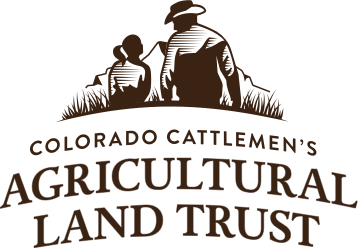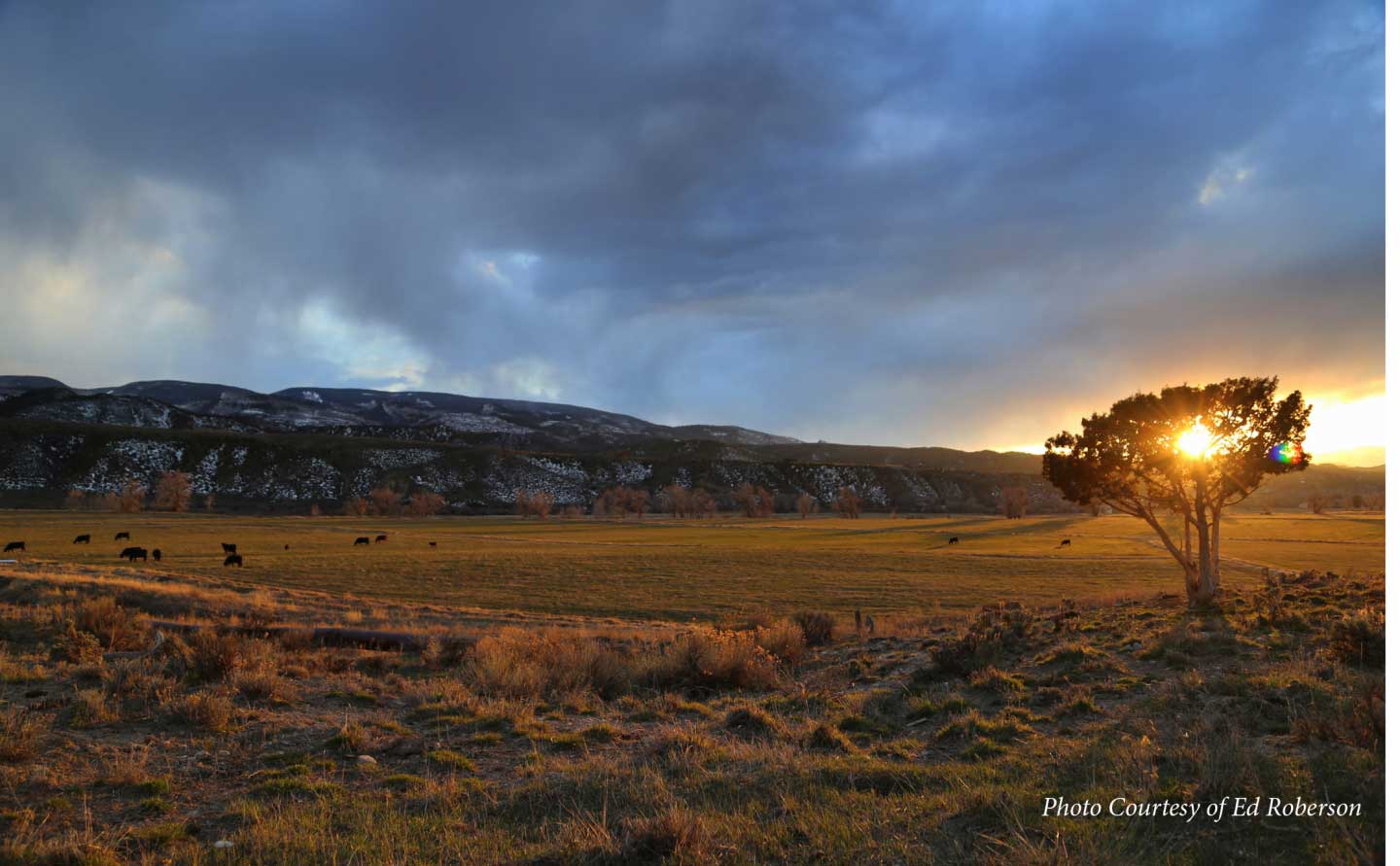Forever Colorado – Written By Ed Roberson
As a staunch supporter of the Colorado Cattlemen’s Agricultural Land Trust (CCALT), I am thrilled with its recent launch of the Forever Colorado campaign – an ambitious, yet attainable, goal to raise $5 million to continue conserving some of Colorado’s most important working lands, thereby protecting the ranching heritage that is so vital to our state’s future. With Colorado’s population set to grow by 30% to 7.7 million people by 2040 and the increasing number of pressures on ranches and ranching families, protecting Colorado’s private agricultural lands has never been more important.
So, why CCALT? What makes this organization uniquely qualified to lead Colorado’s next phase of land protection and conservation? Of all the land trusts operating throughout the U.S. and American West, why do I choose to donate my time and resources to this particular group? I could probably write a book about it (and one day I just might!), but below are a few reasons why I believe CCALT is positioned to lead Colorado’s conservation efforts in the near and distant future:
A Specialized Solution: The concept of protecting land through conservation easements is nothing new; there are over 1,700 land trusts in the U.S. alone. However, in 1995, a dedicated group of ranchers and conservationists decided to focus exclusively on an underserved and poorly understood niche: Colorado’s working agricultural lands. CCALT was formed, and in the 20 years since, it has protected more than 450,000 acres throughout the state.
Colorado’s landscapes, communities, and economy are unique when compared to other parts of the U.S. Ranching has always been the cornerstone of Colorado’s society, and despite a growing population and shifting economy, it continues to be today. CCALT’s emphasis on working lands is a specialized solution for a very special part of the country. Its focus on ranches, ranching families, and the natural resources connected to both make it well suited to Colorado’s unique history and future challenges.
Family Focused: Directly connected to every working ranch is a family (or multiple generations of a family) whose livelihood depends on their ability to successfully run a profitable agricultural operation. As Colorado’s population increases, even the most rural landowners are beginning to feel the pressure of rising property values and encroaching development. CCALT has successfully served more than 240 families, helping them ensure that their ranch will remain a ranch in perpetuity, and that future generations will have the opportunity to continue the ranching tradition in a profitable and sustainable manner.
Ecologically Sound: It has been well documented that the grasslands of the American West need to be grazed to ensure the health of the overall ecosystem. Over millions of years, grasses evolved to thrive when they were periodically grazed by a wide variety of hoofed animals. Starting in the mid-1800s, the advent of private property and fences across the West, combined with the decline of the American Bison and other large mammals, created a situation where grasses were not consistently receiving the grazing and rest that they needed to thrive. Healthy grass benefits not only the ranching families and their operations, but also the overall health of the entire shortgrass prairie and Rocky Mountain ecosystem.
Economically Viable: In addition to the direct economic benefits to ranching families, CCALT’s work contributes to economic prosperity on a local and statewide level. Andrew Seidl, professor at Colorado State University, reports that working ranches generate jobs, income, and subsequent tax revenue well beyond the individuals who are working directly in the ranching world. In Colorado alone, cattle ranching is responsible for over 11,000 jobs, wages of $407 million, and a total economic impact of $1.095 billion. Not to mention that cattle ranchers are producing food, one of our most vital domestic resources.
Colorado’s tourism industry and the related economic benefits are also heavily dependent on ranching. A study conducted by Routt County and cited by Seidl demonstrates that Routt County’s open space and scenic natural environment are the top reasons tourists choose to vacation there. If ranches were to disappear, so would much of the open space, reducing tourism and resulting in over $36 million of lost annual revenue in Routt County alone! This is one of many examples of how ranching has economic impacts far beyond the agricultural sector.
Organizational Strength: Vision, big ideas, and good intentions mean nothing without a strong team that can effectively execute. CCALT’s staff and board consist of committed ranchers and conservationists who deeply understand the importance of Colorado’s working lands and have a proven track record of conserving them. CCALT has demonstrated its commitment to fiscal responsibility by working with financial planners to protect and grow its endowment and ensure future conservation and stewardship. The organization honors its traditions and heritage, but is also creative and innovative when addressing Colorado’s ever-changing ranch-related challenges.
—
For these reasons and many more, please consider donating to CCALT’s Forever Colorado campaign. We need you to play an active role in protecting some of Colorado’s most important lands.

